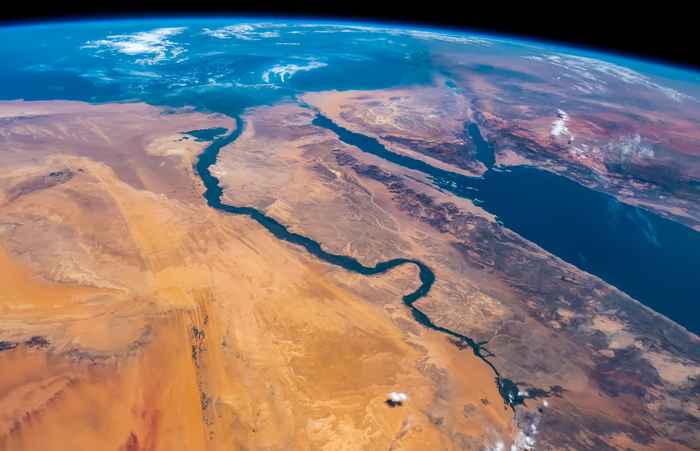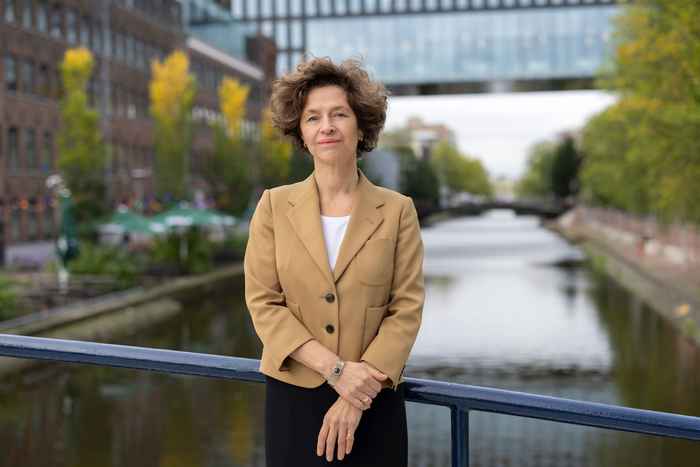Law needs a shared view: rivers just don't stop at national borders
Catherine (Kiki) Brölmann has been appointed professor of Public International Law
23 October 2024

What are we talking about when we talk about ‘public international law’?
'If you open a newspaper now, you see on almost every page a topic that touches on public international law. These are not only the tragic wars in Gaza, Ukraine and Sudan but also, for example, the upcoming ruling of the International Court of Justice on obligations of states around climate change, the trade dispute between China and the EU, clashing claims of authority over sea and land in Southeast Asia and in South America. Public international law today is a vast field of law, applied to states and international organisations, but also, for example, to individuals who are directly subject to international human rights law and international criminal law in addition to “their” national law.'
What are areas of focus in your work?
'I like to look at international law as a system. Generally, the same mechanisms are used for regulation, cooperation and review. In my research, I am often concerned with the making of international law. A classic example are the international rules and practices on treaties. But I also look at the operation of more informal frameworks, such as non-binding resolutions and statements that eventually become the “new normal”. In the last 75 years, international organisations, such as the UN or the World Health Organisation, and regionally, for example, the African Union or the European Union, have gained an important role on the world stage. Many of these organisations have been around for a while, so their mandate or structure sometimes no longer matches political reality. Consider NATO, which expanded its ‘operational domain’ to include cyberspace in 2016. Or consider the composition of the UN Security Council, which reflects the balance of power in the world of 1945 and has been under discussion for decades.'

sovereign states are not allowed to just walk in on each other’s territory and enforce compliance
Do you also engage with these topics in practice?
'Definitely. For example, I have been a member of a group of experts consulted by the UN Rapporteur on the human right to water, or have acted as an expert for the Hague Court. I regularly advise NGOs on the effect of international rulings in the Netherlands, and for years, I served on the Committee that advises the government and parliament on questions of public international law. Legal practice is important, also for sharpening the focus on relevant questions in international law research.'

What do you want to achieve as a professor?
'International law is called public law because it aims to regulate public authority and protect public interests, sometimes also through conflict resolution. Much of my research is concerned with the public dimension of international law. Lawyers will obviously not save the world, but international law can shape our legal imagination and create legal frameworks that facilitate peaceful change and fair distribution. To meet today's global challenges, we need to strengthen the publicness of public international law.'
What does that look like?
'Even in the absence of a central international legislator or enforcer, you can formulate a common interest as an international community. And you can agree on a legal framework - for example, a cooperation structure. This is clear, for example, in the governance of international water resources. Freshwater is so important for all ecosystems on earth that states must cooperate. Rivers do not stop at national borders. Traditionally, therefore, you find sophisticated legal arrangements between riparian states. But of course, this does not always work out, because of conflicting interests. In an upcoming research project together with a colleague from development studies, I am looking at a similar problem within the Netherlands, where increasing water scarcity necessitates the reallocation of freshwater among different users and usages'.
Can public international law solve such problems?
'Yes, but there are limits, of course. Not least because public international law originates in a system of voluntary agreements between legally equal states. So, how do you get North Korea to go along with a legal regime on nuclear weapons? Or the Netherlands to adhere to a legal framework on biodiversity? Or how do you regulate AI through a treaty between states, when by far the most power lies with private parties like the Platforms and Elon Musk?'
And on top of that, how do you ensure compliance?
'Indeed, sovereign states are not allowed to walk in on each other’s territory and enforce compliance with some legal rule. But the cliché that "states don't abide by international law anyway” is untrue. At one point it was calculated that 90 per cent of international law is complied with. That's more than national law in some cases.'
What would you like to impress upon students about public international law?
'Everything I have just mentioned. In doing so, we aim to teach an international group of students to think and work with international law, while also bringing international law to the forefront for students primarily focused on Dutch law. It remains essential to show that international law is not an exotic field of law but a framework of concrete rights and obligations with a major impact on the Dutch legal order. This is not only because we have an open constitutional system, but also because the Netherlands is embedded internationally in countless ways. If you practise a legal profession in the Netherlands, you will quickly encounter rules of international law. As will all citizens, for that matter.'
You have engaged with legal scholarship in places like Helsinki, Paris, Cambridge, Bologna and Istanbul. So how do you view the UvA?
'Last year I was a visiting professor at the Sorbonne, and I noticed that they are very strong in positive international law but seemed less inclined toward research questions aimed at uncovering ideologies or power relations underlying the law, for instance through the lens of postcolonial history or gender. At the UvA, there is room for both types of research. I think this is crucial for the future of legal scholarship. We also want to instruct our students on the combination of high-quality research into positive international law and critical scholarly reflection on that law. It really is a trademark of this faculty. We should be proud of that.'